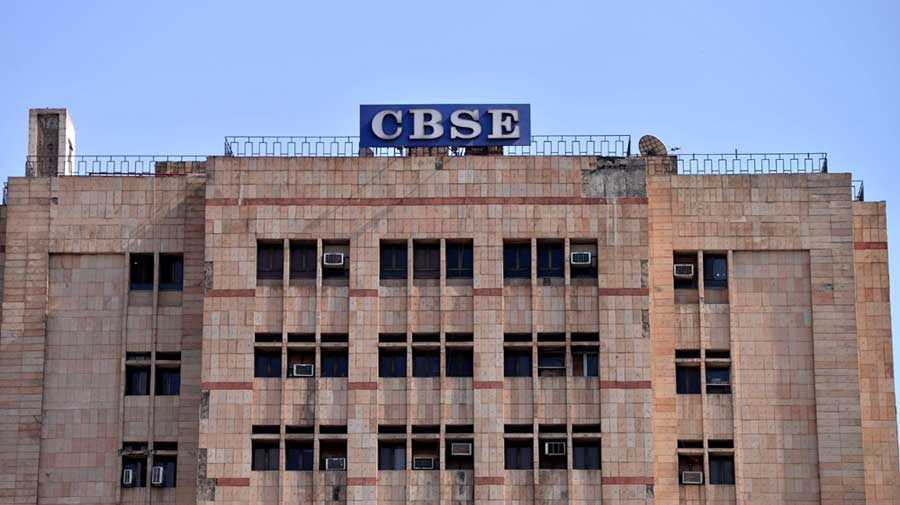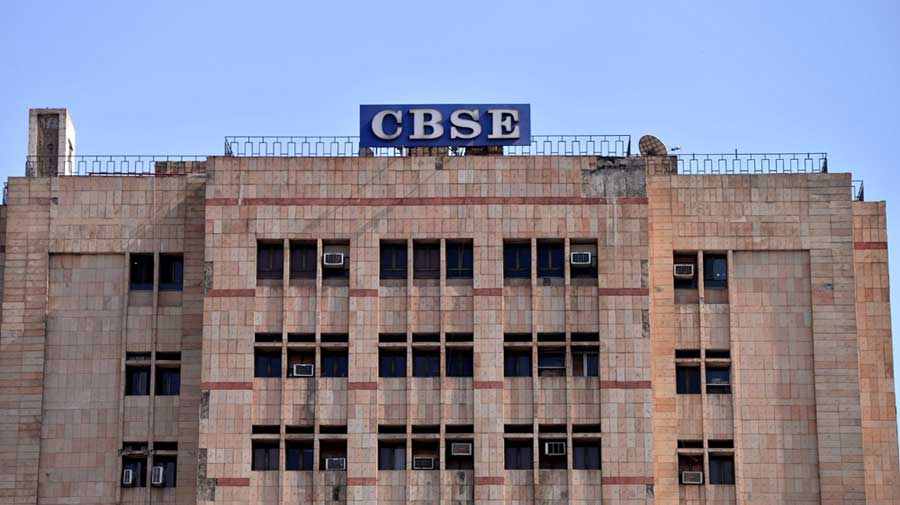The CBSE on Saturday issued instructions on how Class X and XII students should write their first-term board exams, to be held in the multiple-choice question format in a first for the national board.
The first-term exams for Class X are scheduled from November 17 and those for Class XII from November 16. Some 36 lakh students are to take these.
⚫ In a circular, the Central Board of Secondary Education has said an examinee will be given a question paper and a separate answer sheet, called an optical mark recognition (OMR) sheet.
⚫ On the question paper, each question will have a number and will be accompanied by four answer options, marked A, B, C and D.
⚫ The OMR sheet will have four empty circles marked A, B, C and D against each question number. Beside these will be a single rectangular box and another — slightly larger — circle.
⚫ If the student thinks the correct answer is B, say, she must darken the empty circle marked B with a blue or black ball-point pen, and not a pencil. After that, the student must write the number of the correct option — B in this instance — in the rectangular box.
⚫ If the student realises she has darkened the wrong circle, she needs to darken the right circle too and write the correct number in the box.
⚫ However, darkening the correct circle while leaving the box empty will be taken to mean the question has not been attempted. But writing the correct number in the box while leaving all the circles empty will be accepted.
⚫ The larger circle will carry the question number. Darkening this circle will mean the question has not been attempted.
⚫ The schools are to download the OMR sheets, which will have the details of the candidates pre-printed. The student must write “I confirm that the particulars given above are correct” and sign on the sheet.
⚫ Each paper will have extra questions. For example, the Class X English paper will carry 60 questions, of which the student should answer 50. In mathematics, the student has to answer 40 of 50 questions.
Never before had the CBSE split any board exam into two editions or held MCQ tests. The innovations have been forced by the pandemic — an MCQ test is shorter (90 minutes) than a subjective test (180 minutes), and the first-term exam is insurance in case Covid prevents any (second-term) exam next year.
The CBSE has said whether the second-term exam, expected in March-April, is MCQ-based will depend on the Covid situation.
In the first-term exam, the students will be assessed on about 50 per cent of the syllabus, with the rest left for the second-term exam. Each subject will set aside certain marks for internal assessment or practical assignments.
Odisha too has decided to hold its Class X board exams in the MCQ format, but at one go next year.
Educationist Anita Rampal, former dean of the faculty of education, Delhi University, opposed MCQ-based school board exams saying they were “a damaging shortcut”.
“This doesn’t help the students develop a deeper understanding of the subjects. They don’t acquire the abilities of expression, observation, analysis or writing, because the teachers focus on teaching to the test requirements,” Rampal said.
She said MCQ tests should ideally be used as a first level of screening for large-scale competitive exams.


